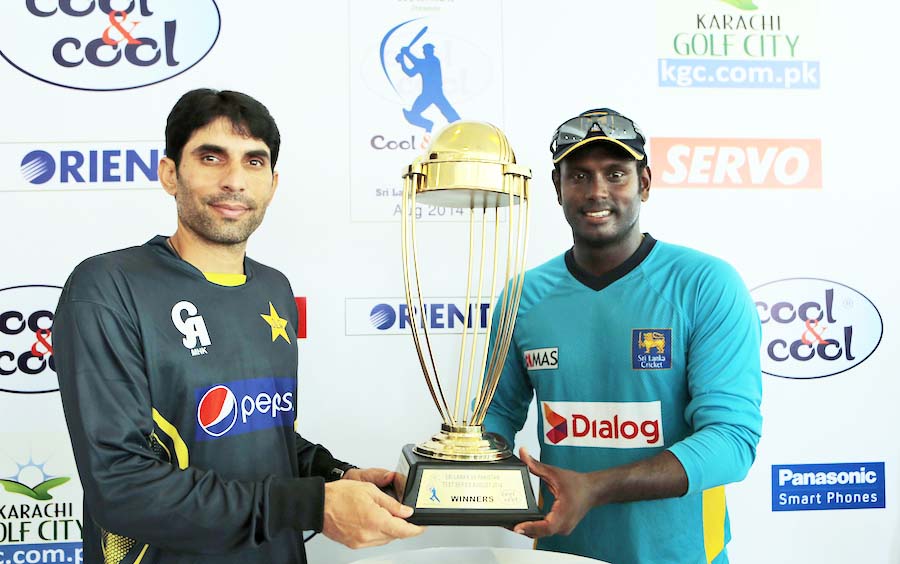
AFP, Karachi :If any further proof were needed of the chaos prevailing in Pakistani cricket, the 27th change of coach since the country’s sole World Cup win in 1992 provides it. Pakistan’s series against Sri Lanka, which begins on Wednesday at Galle with the first of two Test matches, sees legendary fast-bowler Waqar Younis return as coach three years after his last stint. Compared to Pakistan’s 27 changes since 1992, India have had 10 coaches, England nine and Australia just seven. Critics regularly blast the constant changes within the Pakistan Cricket Board-with its recent revolving door for the post of chairman and regular allegations of nepotism in team selection-for holding the country back. Younis’s first shot as coach came from March 2010 to August 2011, and was relatively successful-with Pakistan reaching a World Cup semi-final and beating Australia in a Test for the first time since 1995 — but ended in an acrimonious disagreement over pay. He has now been handed a two-year contract, but his tenure will largely depend on how Pakistan fare in the 2015 World Cup. “Even a World Cup victory is no guarantee of keeping the job as ex-coach Intikhab Alam, removed within a year of leading the team to their 1992 triumph, well knows. Pakistan’s coaches have often faced the sack over routine defeats, where in other countries they might have been given an extended run. Alam has remained the most favoured coach, with five stints at the helm. He was also once employed by India’s Punjab team-the only man from either country to coach in their arch-rival’s territory. Known for his unassuming style, he famously took the back seat during the 1992 triumph, allowing authoritative captain Imran Khan to run the show. He also has the unwelcome distinction of being sacked midway through a series, after Pakistan trailed 2-0 in a three- match series against Sri Lanka in 1995. “This is not the way to treat your coach,” Alam said at the time. “I served the team to the best of my ability and the coach is not solely responsible for defeats.” After Alam, Pakistan turned to former batting great Javed Miandad. A force to be reckoned with on the field, he was not as successful when it came to coaching and two of his three tenures ended abruptly-once after defeat against India in 2004. That brought Pakistan their longest serving coach, Englishman Bob Woolmer, whose nearly three-year stint ended in his sudden death during the 2007 World Cup in the Caribbean. He once said he had enjoyed the job despite the “unwanted luggage” that came with it, a reference to the off-field controversies that have dogged the team over the years, including match-fixing. Before Woolmer, Englishman Richard Pybus-Pakistan’s first foreign coach-had been sacked after only three months in the job following heavy defeat in Australia in 1999. Pybus’s second tenure wasn’t successful either-he was booted out after Pakistan failed to progress beyond the first round of the 2003 World Cup. Geoff Lawson succeeded Woolmer, but the hard-nosed Australian was sacked as soon as a new chairman was appointed in 2008 following the end of military ruler Pervez Musharraf’s reign. “When the government changed everyone knew the (cricket board) chairman would change and when that happens, a lot of things change,” Lawson said at the time. “So it was always a possibility rather than a probability. That is just how things work over here.” Pakistan’s fourth foreign coach, Australian Dav Whatmore, also had an uneasy time during his two-year stint, which ended in February this year. Former players called for his sacking and branded his appointment a waste of money. But Whatmore, who famously guided Sri Lanka to World Cup victory in 1996, departed on a rare happy note with a Test victory, having also bagged an Asia Cup and an away ODI series win against India along the way. “I am sure that I will be back in a different capacity, sooner rather than later,” he said. “I will always look forward to coming back to Pakistan.” For the first time, Pakistan now have a full-fledged coaching staff with Zimbabwean Grant Flower to help batting, leggie Mushtaq Ahmed to guide the spinners after a long stint with England, and South African Grant Luden in charge of fielding. The support staff should relieve some of the burden from Waqar’s shoulders as he seeks a productive partnership with evergreen captain Misbah-ul-Haq, who has brought a degree of continuity to the team in recent times and at 40 is just two years younger than his coach. With the PCB in the midst of another attempt at reform and set to hold their first ever democratic election for the post of chairman this month, fans will be hoping for some long sought- after stability.

